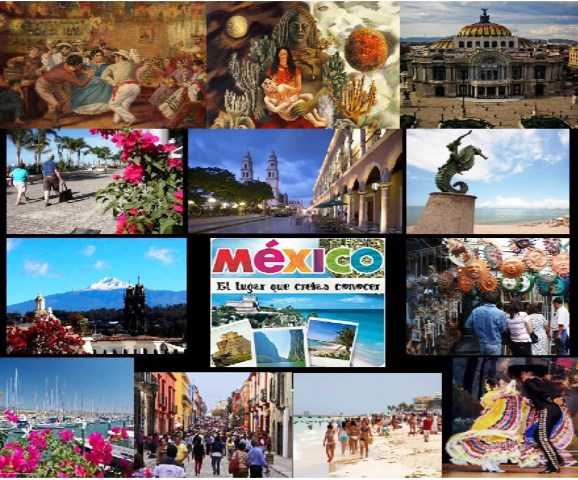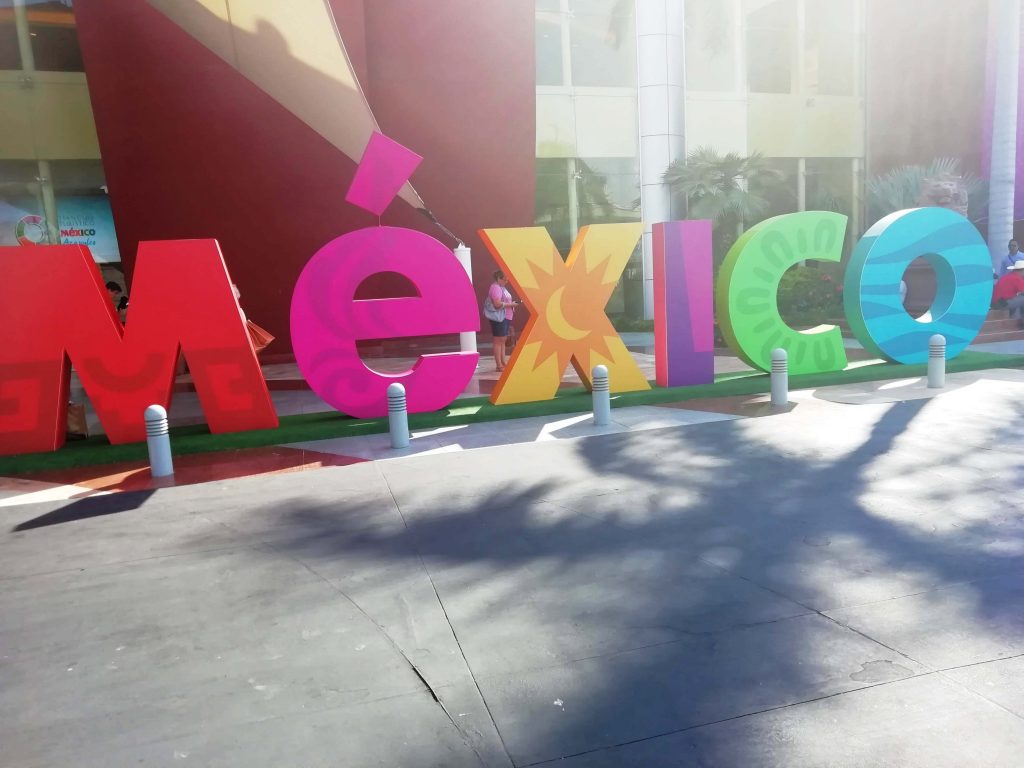Mexico Has a Special Place in World History
By Marbella Valle Obregón, M.Ed., Professor of Academic Oral Expression and Writing, Universidad Tecnológica de la Costa Grande de Guerrero*

Figure 1. Taken from: “A Look through Mexico.” Retrieved from http://adligmary.blogspot.mx/
Culture, Diversity, Art . . .
Talking about Mexican culture is talking about diversity, art, literature, origins, roots, identity, and belonging to the motherland. Why is it that we now live without these basic elements of human experience?
What changes has our culture experienced since the beginning of human existence? What influences have other countries had on our culture? How has literature influenced Mexican culture? Let’s have a look…
Inherent National Wealth
Mexico’s inherent national wealth has a special place in history. Mexico has 31 sites on the World Heritage List and seven elements of Intangible Heritage, including the pre-Hispanic cities of Palenque, Teotihuacán, Uxmal, and El Tajin; the Whale Sanctuary of El Vizcaíno; and the Monarch Butterfly Reserve in Michoacán.
Mexico has more than 1,200 museums. We have 132 “Magical Towns” with diverse colonial cities. Our country has naturally protected areas, national parks, mangroves, deserts, forests of cacti, seas, lagoons, mountains, rock formations, volcanic cones, beaches, etc.
Mexican culture also influences the world of performing arts. There are international cultural, theatre, and music festivals dedicated to Mexico in cities all around the world from San Francisco to Paris.
Mexico’s cultural history is a universal legacy. Its first indigenous inhabitants tried to leave traces of their existence. When they did not know how to write, they looked for ways to leave messages by drawing figures that told stories on the country’s rocky walls.
Our ancestors have left us with art, literature, dance, music, and other cultural traditions to pass on their message of humanity. We have the responsibility to preserve this culture (Sánchez, 2017).
“The human being is born with a form or way of being, like the rest of the living. But there is a big difference between ‘born already formed’ and ‘anthropologically born’ – fully open to what surrounds you.” (Altarejos, 2011).*
Mexico Looks to the Future
But, despite its natural treasures and rich cultural history, Mexico is increasingly impacted by foreign influences, argues the Ministry of Foreign Affairs and the National Council for Culture and the Arts.
In nature, for example, “Revista de Arte” published by the Universidad Nacional Autónoma de Mexico (UNAM), now promotes a new type of culture – “ecological culture,” that appeals to the modern traveler, emphasizing Mexico’s vegetation, ecosystem, and its great diversity of plants due to its climate and fertile soil.
A new change in art is that for the first time in history, the facts, events, and books about our ancient civilizations are now considered teaching tools for education about Mexican customs and traditions.
The “Revista de Arte” at UNAM states, “Mexico is rich in culture. Just look at an art book to see the wonders that have been created. Empathize with the lives of artists and their works; works that arise from the ancient memories that bloom and come together. This is the great value in life.”
How paradoxical that our Mexican population must continue to cultivate our culture and art, obliged to preserve the rich history and traditions of the past; while at the same time, we must prepare our culture for future generations to achieve in tomorrow’s world.
About the Author:
Marbella Valle Obregón holds a degree in Hispanic American Literature and a Master’s in Education from the Tecnológico de Monterrey University. She currently works as a Research Professor at Universidad Tecnológica de la Costa Grande de Guerrero in Petatlán, Guerrero, which is about 45 minutes south of Zihuatanejo.
* Translated by Patricia Ann Talley, Editor
References:
Altarejos Masota, Francisco. (2011). Filosofía de la Educación. Madrid: Universidad Complutense de Madrid.
Cultura mexicana en Estados Unidos (2017). Recuperado de:
http://contenido.com.mx/2014/07/la-cultura-mexicana-en-estados-unidos/
El impacto de la globalización en el ámbito cultural y artístico mexicano (2017). México: Revista de Arte de la UNAM. Recuperado de: http://aureavisurarevista.fad.unam.mx/?p=2868
Sánchez Ogás, Yolanda (2017). La Herencia de nuestros antepasados. México: Divulgación de la historia regional de California.

